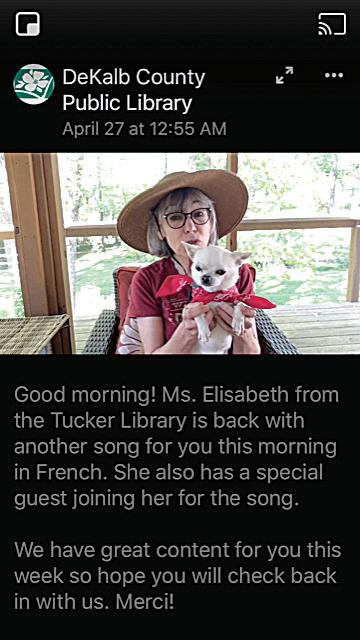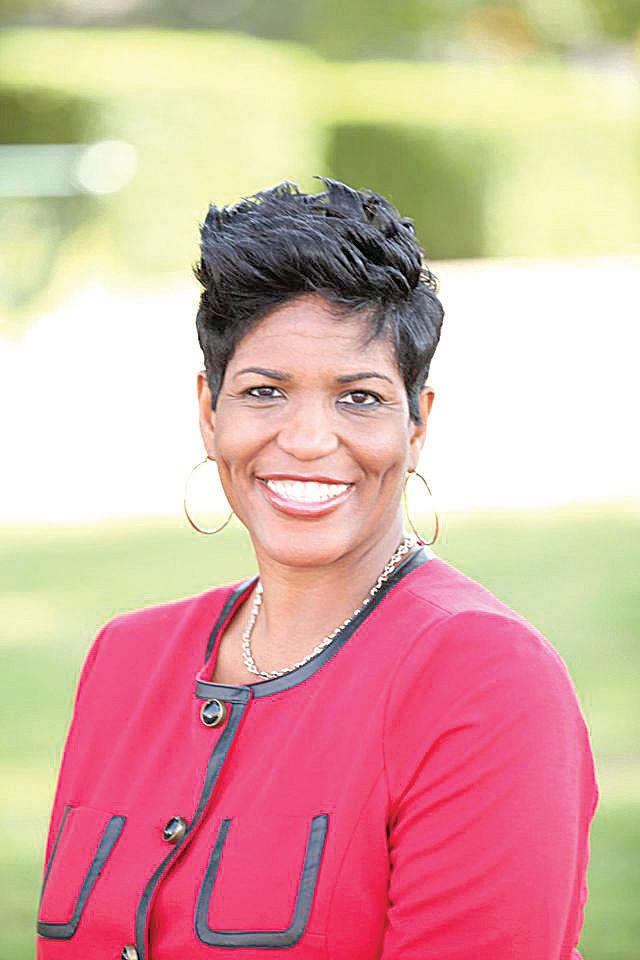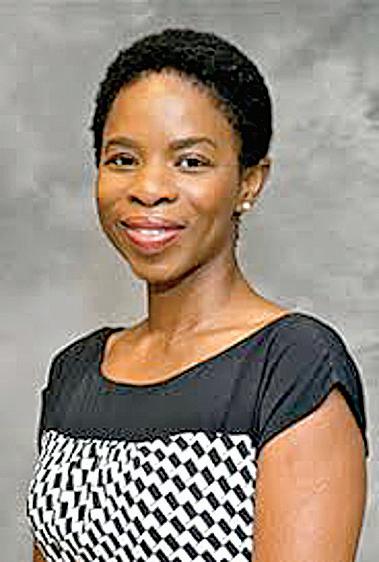
9 minute read
THINGS TO DO
Continued from page 9
day out.”
Advertisement
He sees no end to virtual programming for libraries, even as some metro systems begin to resume various levels of reopening to the public.
The Decatur facility is fortunate to have a 200-seat auditorium where he has personally hosted events such as a music recital for children on the autism spectrum and improv for teens with learning disabilities, Russell said. Those programs can now be done virtually so that many more can attend programs that can be archived and watched at any time, he said.
Ready to serve
But he and other librarians acknowledge downsides to the shift to virtual programming. Beyond not being able to interact in person with patrons, they’re
concerned about people who can’t connect with the library virtually because they have no access to Wi-Fi or computers.
Chappel said people can access free Wi-Fi in DeKalb library parking lots and said some people are using call-in


numbers for online programs. The library’s Senior Advisory Board, which he works with, continues to meet on Zoom to help the library plan programs for seniors. The next meeting is July 22 at 1 p.m. and is open to any senior.
“When it’s safe [to open], we are eager to offer DeKalb residents services that they’re in dire need of, whether it be access to a computer or resources on how to write a resume or having outside social organizations

come in and talk about housing,” Chappel said. “We’re ready to make that happen.”
Other library systems around the metro area also offer online programs. Here are some offerings:
Clayton County Library
System — In addition to story times and craft programs such as “Slow Cooker Play Dough,” the library system offers live “Friday ‘Fun-day’ Trivia Nights” on YouTube hosted by its assistant
Get connected!
Here are links to the websites and Facebook pages for five metro Atlanta library systems. Find links to their other social media sites on these pages.
Clayton County Library System
claytonpl.org, facebook.com/claytongalib.
Cobb County Public Library
cobbcat.org, facebook.com/cobbcountylibrary.
DeKalb County Public Library
dekalblibrary.org, facebook.com/dekalblibrary.
Fulton County Library System
fulcolibrary.org, facebook.com/fulcolibrary. Gwinnett County Public Library gwinnettpl.org, facebook.com/GwinnettLibrary/videos.
director of Technology and Training, Marquita Gooch-Voyd.
“We are also going to implement 60-second book reviews during the Summer Reading months and host a series called ‘From Book to Big Screen’ via Netflix Party where viewers can watch the movie and chat about it all from the comfort of their homes,” Gooch-Voyd said.
Cobb County Public Library —
See the library’s website for links to book club meetings, summer writing camps and other events such as Kemp Memorial Library’s Homeless Pet Club.
Fulton County Library
System — “Everybody just stepped up to the plate and found

their own niche,” said Teryn Gilliam, a branch group administrator, about Fulton’s librarians’ foray into virtual programming. “We’re all excited.” Fulton’s offerings include book clubs, a cooking segment called “Adult Eats and Treats,” Fitness Tuesdays, and a story time for adults called “Book Break.” The library also provides Teryn gilliam access to the WordPlay Shakespeare eBook series, which offers filmed performances of Shakespeare’s plays placed next to the original text of the plays.
Gwinnett County Public
Library — “Most of our programming is happening on Facebook and Instagram right now and we’ve used pre-recorded programs/content as a foundation as we’re figuring out how to create more of a sense of community in digital spaces,” said Don Giacomini, a Youth Services specialist.
Youth Services has produced more than 100 programs on Facebook and Instagram from story times to “Backyard Biology.” There’s a virtual Sewing Club for teens, and adults are meeting with book clubs on Google Hangouts, taking classes such as “Baking with Becca,” and participating in the library’s



virtual Author & Speaker Series. Find the series at gwinnettpl. org/adults/gcplvirtual-authorspeaker-series. Video production has become a 40-hour-a-week job for librarians such as himself and once libraries return to full service, fewer virtual programs may be able to be offered, Giacomini said. But community response has been good, he said, adding, “I think because of that we’re going to almost certainly continue what we’re doing now indefinitely.”
ANYTHING BUT RETIRED.

Designed to bring out the best in you. The Arbor at BridgeMill makes everything possible. Incredible activities. Regularly scheduled events. Delicious food, fitness and fun. Luxury without expensive buy-in or entry fees. And a sense of community that makes every day your best one yet.
CALL 770-765-0607 TODAY FOR MORE INFORMATION.
700 FREEDOM BLVD., CANTON, GA | ARBORBRIDGEMILL.COM/LIVING
Summer’s here, so enjoy the sun, but wear sunscreen
If you are alive at 65, you have a lot to be grateful for, and probably a lot more living to do.
Most people who reach that age can expect to live, on average, two more decades, according to the Centers for Disease Control and Prevention. But Judith L. Kanne, remember, we want RN, BSN, BA to remain in good health and continue to take care of ourselves during is a registered nurse and freelance writer who lives in Atlanta. those 20 years.
July is UV Safety Month, so let’s take a look at one common problem facing us as we age: skin cancer. Most skin cancers are found in people older than 65 and UV, or ultraviolet, light from the sun is the most common

FAMILY OWNED & OPERATED “BEST VALUE SENIOR LIVING & MEMORY CARE” IN THE HEART OF SANDY SPRINGS ALL – INCLUSIVE RATES Community Is Almost Finished with New Updates, Call Now for your Discounted Renovation Special

CALL TODAY 404-843-8857 690 MOUNT VERNON HWY, SANDY SPRINGS, GA 30328 VERNONSPRINGS.COM CURT@VERNONSPRINGS.COM



cause of skin cancer. About 5 of what we have. million people in the United The good news is there are States will be treated for skin simple ways to protect your cancer this year, at a cost of $8.1 skin and reduce your risk of billion. damage from UV light. Although
There are good reasons why we are talking about seniors, older adults are at higher risk the guidelines fit almost every of developing skin generation. cancer. For one You can protect thing, UV damage your skin by: builds up over time. ■ Avoiding The longer you live, periods of direct the more exposure sunlight between you will accumulate. 10 a.m. and 4 p.m.,
Second, our when possible generation didn’t ■ Using grow up with sunscreen with “sunscreen” the SPF minimum warnings. During of 15 or more our teen years, when you are in we likely applied direct sunlight baby oil before ■ Wearing sunbathing — it was a hat and fashionable at that lightweight time. In fact, when I was growing up Nokuthula Msimanga (Courtesy of Northside Hospital) shirt with long sleeves to protect on the West Coast, your arms from it became popular to add iodine exposure to the oil to “boost” the tanning ■ Checking your skin, at least effect. Since moving to Georgia, once a month, for any changes I’ve learned my Floridian Dr. Nokuthula Msimanga counterparts did much the same is a board-certified physician thing. in family medicine, geriatrics
We can’t correct all the and palliative medicine with damage we did during our teens, Northside Hospital in Cherokee. but we can benefit by taking care Atlanta Senior Life asked her

a few questions on how best to protect aging skin.
Q: How often should seniors see a dermatologist?
A: The American Cancer Society recommends monthly self-examinations and annual doctor visits to screen for potential skin cancer. For patients that are higher risk, more frequent dermatology visits are recommended.
Q: Is there a difference among different skin tones (e.g., will darker skin offer more protection and less skin cancer?) A: There is a myth that people with darker skin tones are immune to skin cancer. This is not true. People with darker skin tones and African Americans do get skin cancer. According to the American College of Dermatology, people with darker skin tones often do not receive a diagnosis until the cancer is can be harder to recognize with darker skin tones. This is why it is important to check your skin on a regular basis to assess abnormal growths or changes.
Q: What should we look for?
A: Diagnosing skin cancer or changes in your skin begins with a visual examination. When doing monthly exams, it is important to check each spot for any unusual growths and changes in their size, shape, or color. It is important to report any changes to your primary care provider or to your dermatologist for further evaluation or testing.
Eye Protection
UV rays can also cause eye problems. According to the American Cancer Society, “They can cause the cornea (on the front of the eye) to become inflamed or burned.” They also can also lead to the formation of cataracts, which cloud the lens, or tissue growth on the surface of the eye. Both conditions can impair vision.
The CDC reminds us that sunglasses that block both UVA and UVB rays offer the best eye protection. Most sunglasses sold in the U.S., regardless of cost, will meet this standard. The “wrapsound” style work nicely because they block the side entrance of UV sun rays.
“Diseases like cataracts and eye cancers can take many years to develop, but each time we’re out in the sun without protection, we could be adding damage and increasing our risk for these serious disorders,” the American Academy of Ophthalmology says on its website.
The UV “take-away” message from Johns Hopkins Medicine is a good reminder in that: “Everybody needs some sun exposure to produce vitamin D (which helps with calcium absorption for stronger, healthier bones).” But unprotected exposure to UV rays can cause damage to the skin, eyes and body, and this damage can lead to skin cancer or premature skin aging.
So, as you head outside this summer, enjoy the sun, but be careful. Slather on the sunscreen and wear a hat.
Medicare does not cover screening for skin cancer
in asymptomatic people. It does, however, cover a physician visit initiated by a concerned patient who has noticed, for example, a change in the color of a mole (clinically described as a pigmented nevus or, more generally, skin lesion), or a new skin growth.
Similarly, if a physician notices such a suspicious sign during a visit for another purpose and extends the visit to investigate further, Medicare may pay more for the visit if it meets certain criteria for a higher level “evaluation and management service” (which is Medicare payment terminology for a physician visit).
In either situation, if the patient is referred to a dermatologist for further assessment, that referral visit is also covered.










